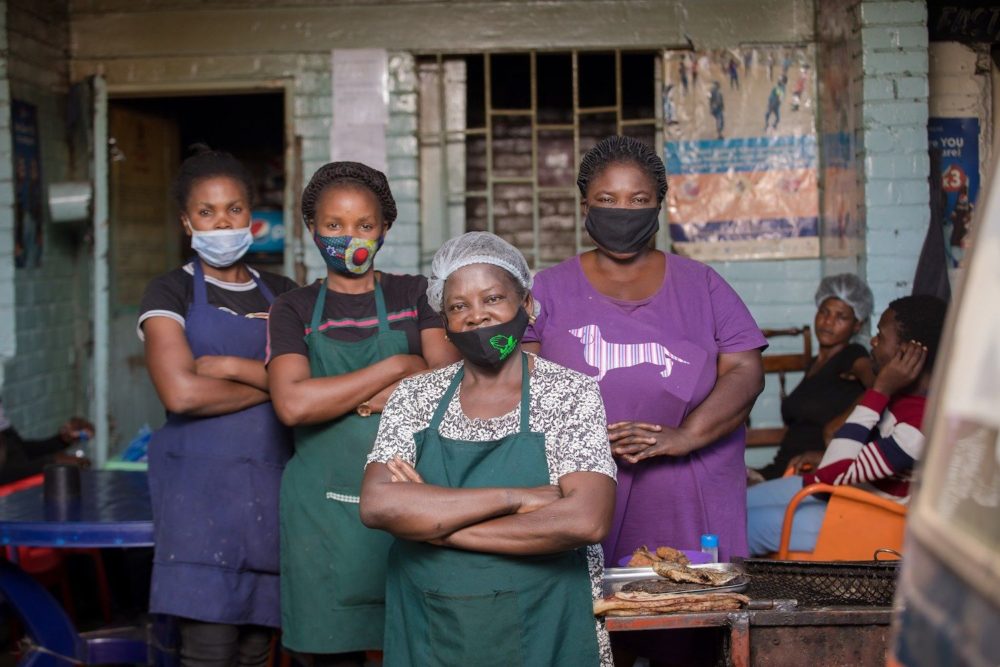Editor’s note: This is the first story from AFN Africa. Our coverage of Africa’s emerging agrifoodtech sector is supported by Dutch development bank FMO.
Growing up in Zambia’s capital Lusaka, Njavwa Mutambo witnessed first-hand the troubles his mother went through in making orders for her city center restaurant business. Mutambo was the restaurant’s errand boy after school and on the weekends, going to supermarkets and other suppliers to buy foodstuffs and other goods for the business.
“It was a real hustle for my mum, managing the inventory,” he recalls.
Many restaurant and shop owners in Africa operate informal businesses and have to source their inventory in person. This partly explains why transport and logistics account for 40% of the costs of Africa’s fast-moving consumer goods (FMCG) sector.
To make procurement easier for business owners like his mother, Mutambo began tackling Africa’s logistics challenges head-on – first through his own company Musanga Logistics, which facilitated FMCG distribution across Zambia; then with LORI, a larger logistics firm that specifically catered to restaurants.
His newest endeavor is Kibanda TopUp, a Nairobi-based tech venture he launched last February with his business partner, Emilie Blauwhoff, to help restaurants manage their inventory.
Pandemic launch
Starting a restaurant tech company in the early days of the Covid-19 pandemic was a bold move.
“It has been a tough season for the industry, due to the lockdowns. It will take a long time for the industry to recover,” Mutambo says.
But his mission is to help Africa’s restaurant sector bounce back, and to support its long-term resilience by mitigating pain-points in the supply chain. He estimates that African restaurants and food vendors spend $80 billion annually on supplies, and typically source from between five and 15 suppliers daily.
This inefficiency has an impact on food prices and food security, since the majority of Africans depend on informal and small vendors to buy food each day.
Kibanda TopUp’s solution is a mobile app that allows restaurants to order their daily supplies online, with guaranteed delivery timeframes. It’s underpinned by relationships with food supply manufacturers, wholesalers, farmers, and fresh produce aggregators, and is backed up by a physical logistics network, comprised of two warehouses in Nairobi, a fleet of electric bikes for delivery, and route optimization tech.
“The aim is to ensure we supply restaurants at competitive rates,” Mutambo says. “It’s a challenge, but also very fascinating. We use data to improve our supply chain and to deliver on time.”
Kibanda TopUp’s technology also helps restaurants mitigate another persistent challenge: lack of access to working capital.
Restaurant rebound
Kibanda TopUp saw a substantial drop in demand at the height of Kenya’s Covid-19 lockdowns last April and May, with many restaurants and food vendors forced to shut their doors. Some never reopened. But today, about 2,200 restaurants in Kenya and 150 in Nigeria are using the platform – and its numbers are growing consistently each month. The company claims its sales run-rate is $4.5 million.
That traction helped Kibanda TopUp secure $460,000 in pre-seed funding in June, which the company will use to expand its engineering team and supply chain network. It’s also building out its products and services, with plans to expand into inventory financing and business management support.
Financial services for restaurant businesses is a critical focus area, says Mutambo. The company is leveraging its customer purchasing data to cultivate partnerships with lenders to support access working capital and business expansion loans.
Mutambo acknowledges that it is still early days for the company, but that the impacts of Kibanda TopUp’s solution on the African restaurant sector are already visible. He has seen a number of vendors stabilize their cashflow management and transition from informal to formal enterprises.
Kibanda TopUp has plans to expand into new African markets, including Mutambo’s native Zambia. He says that initial launches in Kenya and Nigeria made strategic sense: the former is a more mature market with easier access to capital, talent, and a restaurant businesses; the latter was a logical second market due to its size.
“Entrepreneurs need to detach themselves from their nationalities, and focus on opportunities beyond borders,” he says.
Correction: A previous version of this article misstated Kibanda’s sales as $3 million per month. The company’s annualized sales are projected to be $4.5 million.





